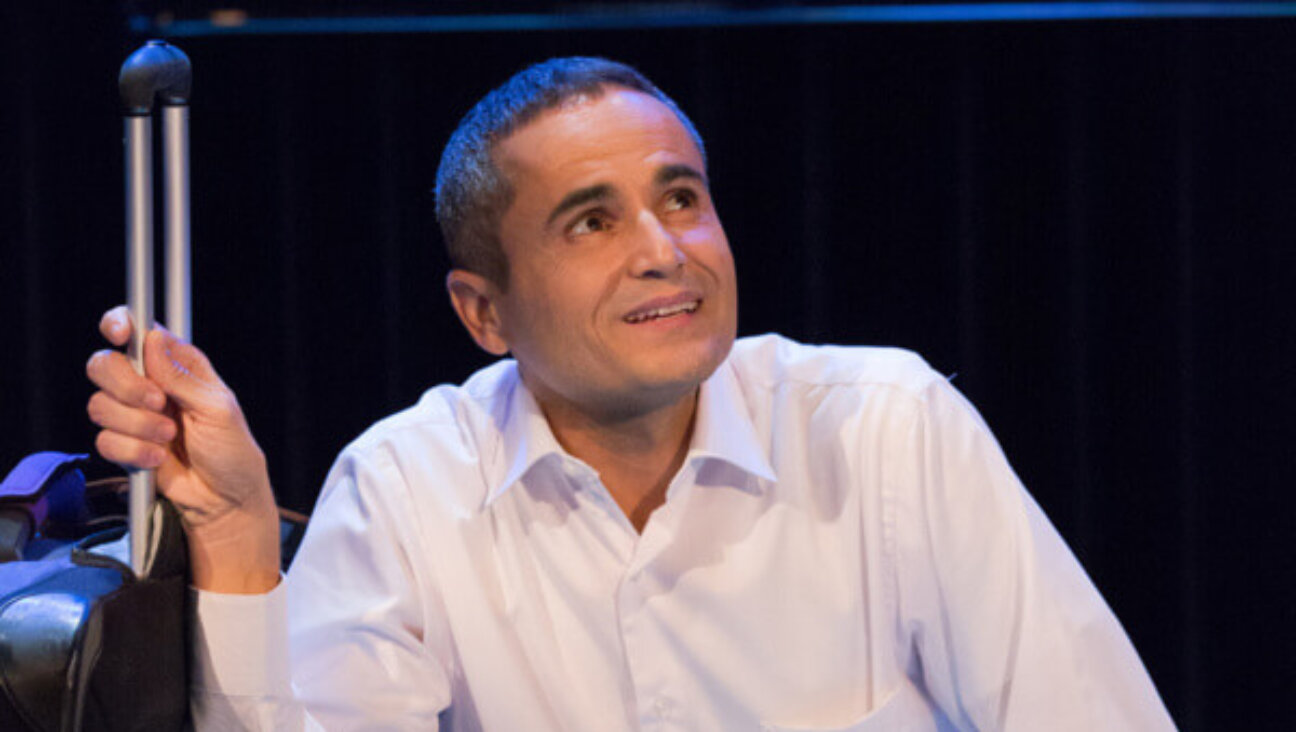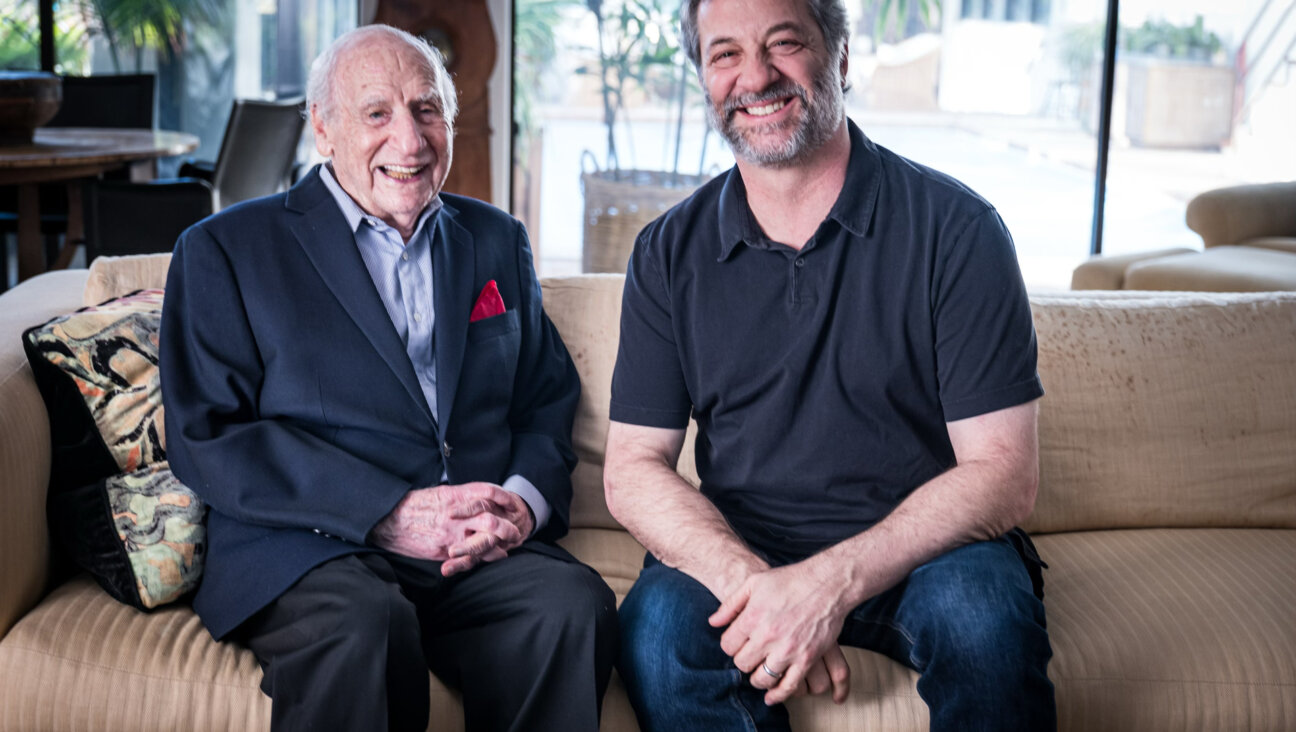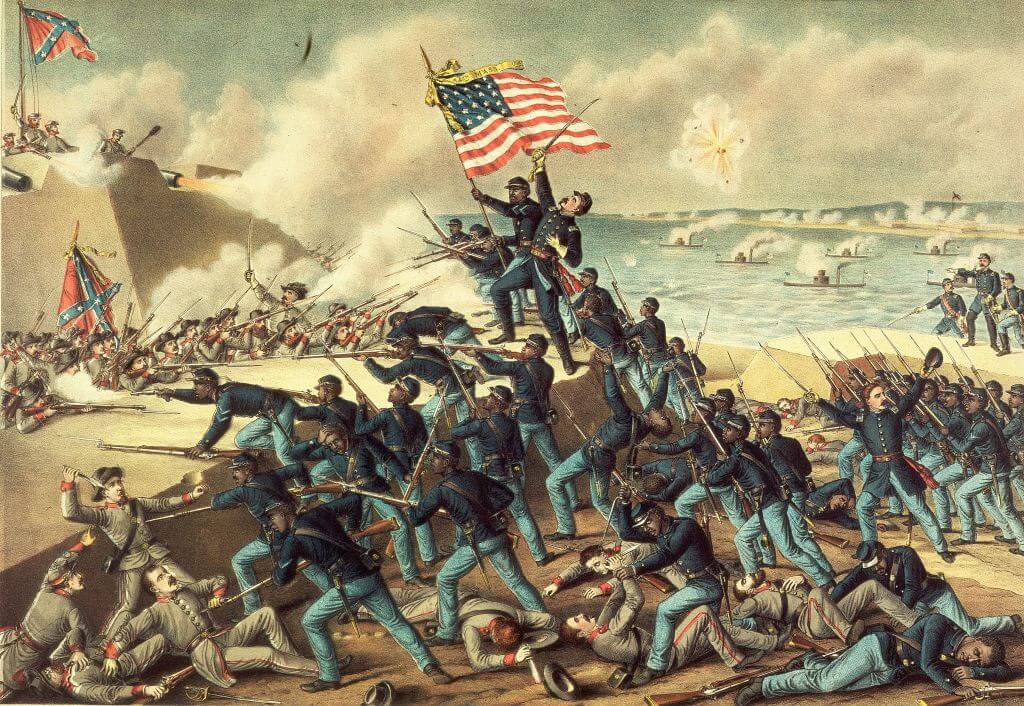Hanukkah
Trim the Tree, Spin the Dreidel, It’s Chrismukkah!
Last December, the Fox network’s hit teen drama “The O.C.,” which is short for Orange County, Calif., featured an episode in which nerd-heartthrob Seth Cohen (Adam Brody) introduced his foster brother, Ryan (Benjamin McKenzie), to the ecumenical ways of his half-Jewish, half-Protestant family.
“Don’t worry about it, buddy,” said Seth, in an effort to allay Ryan’s confusion about whether they’d be celebrating Christmas or Hanukkah. “In this house, you don’t have to choose. Allow me to introduce you to a little something I like to call Chrismukkah.” “Chrismukkah?” Ryan asked.
“That’s right,” Seth said. “It’s the new holiday, and it’s sweeping the nation.” It might be a line from a television show, but Seth couldn’t have been more correct. Since “The O.C.” aired its Chrismukkah episode (titled “The Best Chrismukkah Ever”), the phrase “Merry Chrismukkah” seems to have caught on, tickling and puzzling linguists, marketers and demographers alike. This year, on December 16, the show will return to its newly christened (for lack of a properly hybridized term) holiday in an episode called “The Chrismukkah That Almost Wasn’t,” and Warner Brothers Records has released an “O.C.” mix album called “Have a Very Merry Chrismukkah.” Though far heavier on the “chris” than the “mukkah,” perhaps the best track on the disk is a jangly Maoz Tzur played with guitar accompaniment — a sort of rockabilly of ages.
For Anti-Defamation League spokesperson, Myrna Shinbaum, the newly embraced term is simply the continuation of a longstanding trend.
“For years and years, we have been seeing the combination of Hanukkah and Christmas put together because of intermarriage,” she said. “You can go into any card store and see a whole section geared toward intermarried families. It’s a reflection of the reality of life.”
Indeed American Greetings, which, behind Hallmark, is the nation’s second largest producer of greeting cards, is offering some 10 cards this year that mix Christmas and Hanukkah imagery. (And in an ironic twist, the chairman of American Greetings, Morry Weiss, is also the chairman of Yeshiva University.)
As for Chrismukkah, some experts say the phrase just might have legs.
“So many people are in blended families, and this might be appropriate in such cases,” said Joan Houston Hall, chief editor of the Dictionary of American Regional English.
But at the same time, Hall already can sense a potential backlash. “I could anticipate that conservative Christian groups would be quite unhappy with it,” she said.
But interestingly it seems that not all Jewish groups are. According to a recent article in the Times of London, Jonathan Romain, a prominent London Reform rabbi, has endorsed the sending of “Chrismukkah” cards. “It is a very useful way of getting around the delicate religious problem of what greeting card to send a Jewish-Christian couple without upsetting either [party],” he told the Times.
And where there’s demand, there’s supply.
Inspired by “The O.C.,” Montana couple Ron and Michelle Gompertz (he’s a Reform Jew; she, a minister’s daughter) registered the Web site www.chrismukkah.com, through which the two sell a line of cards mixing the symbols of Christmas and Hanukkah: a menorah with candy canes in place of candles, a snowman with a yarmulke on its head, a Christmas tree draped with dreidels.
Chrismukkah.com might just be the most informative Web site ever committed to the sale of greeting cards. The site offers a “fact sheet” devoted to the question of intermarriage, which states, among other things, that nearly half of those American Jews married since 1996 have married non-Jews.
The Virgin Mobile cell phone company has taken the already ecumenical Chrismukkah one step further. Their current ad campaign offering a new line of phones boasts, “The best Chrismahanukwanzakah gift ever!”
Although “Merry Chrismukkah” is often credited to “The O.C.,” it seems the show only popularized it. According to an online discussion list run by the American Dialect Society, the phrase can be traced as far back as the 1960s. And, says one discussion list poster, not only have the names of the holidays been mixed, but the adjectives too. “Meppy Chrismukkah” is what he heard growing up.
But while it’s clear that taste makers have begun to embrace Chrismukkah, has anyone heard it used conversationally?
“I never have,” said Brian Gallagher, a senior editor at the New York-based Topic magazine. “But then again,” he said, “I’m from Orange County, and I’ve never heard anyone refer to it as ‘The O.C.’”














